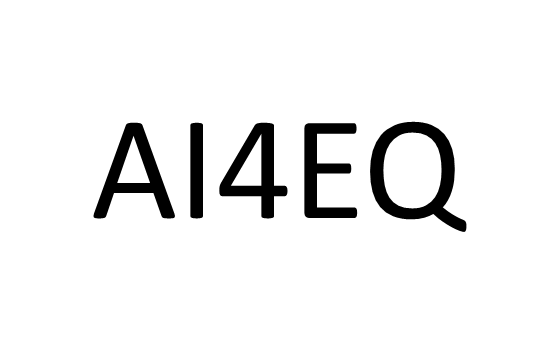List of Topics
Submissions are solicited for the ECAI 2020 Workshop on ADVANCING TOWARDS THE SDGs: ARTIFICIAL INTELLIGENCE FOR A FAIR, JUST AND EQUITABLE WORLD (AI4EQ) for unpublished completed or ongoing work which focus on either one of the following topic areas or some combination of both:
SDG-oriented AI applications for a fair, just and equitable world
Real experience with AI applications (already deployed or not) that can make a significant contribution to achieving the UN SDGs, with an emphasis on reducing inequalities. This covers, for example, fields such as:
- Big data for development (with applications in agriculture, medical tele-diagnosis, etc.)
- Geographic information systems (with applications in public service planning, disaster prevention, emergency planning, disease monitoring, etc.)
- Control systems (with applications in naturalizing intelligent cities through energy and traffic control, management of urban agriculture, etc.)
- E-democracy and participatory democracy systems
- Welfare-oriented service systems.
Proposals that include a reflection on strengths and weaknesses are particularly welcome (ethical problems arising from use of the technology, possible acceptance problems in a specific context or culture, sustainability, gender digital divide, etc.), especially if the argumentation is based on impact measurement using quantifiable metrics (associated with compliance with the SDGs).
Reviews and analysis of the state of the art in relevant application areas are also welcome.
Methods and tools for SDG-oriented AI
Proposals of methodological and technical tools at all levels of the AI research and development processes (analysis, design, implementation, validation, deployment and evaluation), focused on guaranteeing the properties of ethical AI and ensuring compliance with regulations, laws and policies, particularly those focusing on protecting the most vulnerable and marginalized, and those specific to the LMIC context.
Examples of these properties are: explicability, accountability, data governance, design for all, non-discrimination, respect for human autonomy, respect for privacy, robustness, safety, transparency and traceability, broad-spectrum impact forecast/monitoring/measurement, etc. Some properties that are particularly relevant in the case of LMICs are: adaptation to the available resources (hardware, software, connectivity, etc.), impact on the receiving communities, suitability and sustainability, etc.
Some examples of research areas arising in the study of the aforementioned tools are the following:
- Impact measurement by design
- Equity-by-design
- Ethics & rule-of-law by design
- Privacy-by-design
- Safe, Trustworthy and Explainable AI (XAI)
- Standardization/harmonization
- Low-cost AI (e.g. mobile lightweight applications, FOSS solutions)
- The «Open AI» paradigm, where this refers not only to FOSS (Free / Open-Source Software), but also to applying FOSS principles to algorithms, scientific insights or other AI artifacts.
- Culture-aware techniques
- Community-centered technology development approaches
Publication
AI4EQ selected papers will be published in a Special issue of the IEEE Technology and Society Magazine.
Publication in International Journal of Interactive Multimedia and Artificial Intelligence and in Progress in Artificial Intelligence is also a possibility if the subject of the article is a good fit.
Submission guidelines
All papers must be original and not simultaneously submitted to another journal or conference. We will invite contributions of different lengths, including:
- Full papers (less than 12 pages)
- Short papers (less than 4 pages)
- Position papers (less than 2 pages)
in any case including references. All kind of papers should be formatted according to the ECAI2020 formatting style. Details are available at ECAI2020 website. All submissions will be subject to peer review.
Important dates
Abstract registration Deadline: March 8 19 May 4, 2020
Submission Deadline: March 15 26 May 11, 2020
Notification: April 8 14 June 15 20, 2020
Workshop: June 8 August 29, 2020

